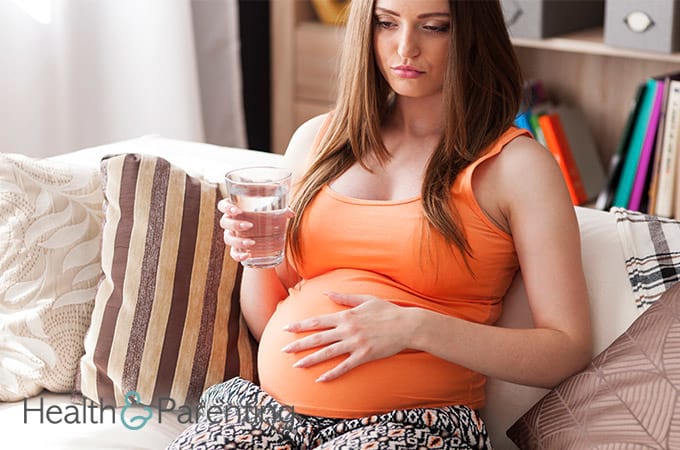Morning sickness is often one of the early signs of pregnancy, and may even have been your lightbulb moment! Morning sickness, or pregnancy sickness as it should be more accurately called, affects around half of all pregnant women. For some women, it is a slight inconvenience, for others it is a huge drain. Morning sickness will not harm your baby, and should clear up by week 14.
What causes morning sickness? Morning sickness is thought to be caused by rapidly increasing levels of hCG. hCG is produced by the embryo, and later by the placenta, and plays a role in controlling hormone production during pregnancy. Women carrying multiple pregnancies are more likely to suffer from morning sickness.
Fatigue, stress, low blood sugar, heightened sense of smell, and increased stomach acid can also contribute to morning sickness.
Morning sickness is characterised by sickness and nausea. You can experience morning sickness without vomiting. The term morning sickness is misleading as it can actually happen at any time of the day.
How can I manage the sickness? For most women, morning sickness is a condition that can be managed from home. To try and reduce or prevent the effects of morning sickness, you could try the following home remedies:
- Eat plain crackers or biscuits before getting out of bed. This should help to raise your blood sugar levels before you try to stand up.
- Eat smaller, more frequent meals. Eating six smaller meals will be easier on your stomach then three large meals.
- Stay hydrated.
- Avoid the sight, smell and taste of foods that make you feel nauseous.
- Try eating ginger biscuits to prevent nausea.
- Drink lemon water, chamomile tea or ginger tea.
- Eat breath mints when you feel nauseous.
- Try acupuncture.
- Eat ice lollies.
- Eat porridge just before you go to bed.
- Avoid lying down after eating.
- Avoid acidic, spicy and fatty foods.
Keep trying different remedies, and hopefully you will find something that works for you. Once you’ve found it, stick with it – even if it means you’re eating an obscene amount of ginger biscuits!
If you cannot find relief from any of the above, and are struggling to cope with the nausea, speak to your healthcare provider. They will be able to advise you about safe and effective anti nausea medication. Your healthcare provider may also recommend taking a vitamin B6 supplement to try and reduce nausea.
If you are suffering from extreme sickness and cannot keep any food down, you should speak to your healthcare provider.
When will it end? For most women, morning sickness ends when their hormones begin to calm down a bit. This is usually around the end of the first trimester. If you are still experiencing morning sickness by week 16, you should speak to your healthcare provider.
Written by Fiona, proud owner of a toddler, @fiona_peacock
This information is not intended to replace the advice of a trained medical doctor. Health & Parenting Ltd disclaims any liability for the decisions you make based on this information, which is provided to you on a general information basis only and not as a substitute for personalized medical advice. All contents copyright © Health & Parenting Ltd 2018. All rights reserved.










